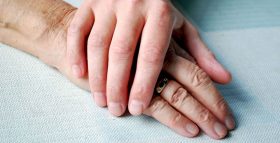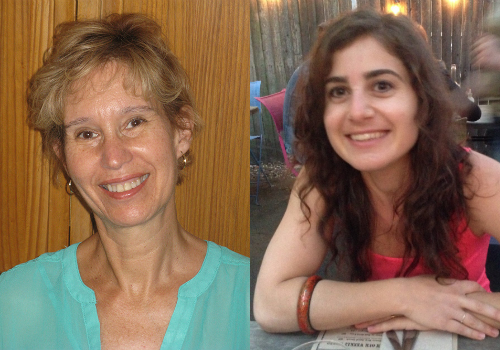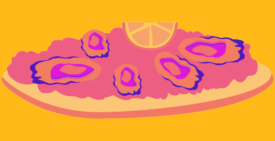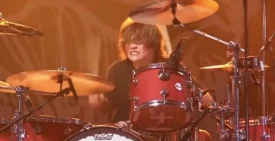In 2009, I trained to be an end-of-life doula in New York. Most people are familiar with the concept of a birth doula – someone who helps a mother as she welcomes a new baby into this world. An end-of-life doula, on the other hand, accompanies a person on his or her way out of this world.
After I trained, I was assigned to a 50-year-old man named Jethro, who resided in a long-term care facility for people with HIV/AIDS. He was estranged from his family and hadn’t had a personal visitor in more than a year.
I was originally drawn to the program because of my own fear of death. When I turned five, I proceeded to spend the next 22 years flipping out about the impending end for me and my loved ones. I thought facing my fear head-on would desensitize me to the dread I often experienced.
My ensuing three-and-a-half year relationship with Jethro, which lasted until he died, did not erase my death aversion — that’s as strong as ever — but I learned to be present with those in pain. It also gave me entrance to a community of people willing to discuss the tough stuff.
I recently spoke with Amy Levine, the executive director of the Doula Program to Accompany & Comfort, where I trained. The program launched in 2001 in response to the number of individuals with life threatening illnesses facing the end of life alone, without significant support from family or friends. It provides volunteers who visit someone weekly until they die. These relationships can last months, or even years. Levine, a veteran hospice social worker, develops the doula-training curriculum, leads its training sessions and consults for other end-of-life volunteer programs.
How does this relationship help someone who is dying?
The doula gets to know the individual beyond his or her illness. He or she listens to their pain, shares in their interests, or sits silently without agenda, getting to know them at a stage of life when most people are not making new friends.
What draws people to this type of work?
One reason is their own fears around dying and death. Others want to learn more about the process. Still others want to give back to the community. But mostly, people are attracted to engaging in a relationship. They want the contact, the involvement and they are drawn to the mission – making sure someone is not facing this alone.
Describe the training to become an end-of-life doula.
We provide eight sessions with individual themes like spirituality, culture, diversity, healthcare systems, and tools for visiting. It’s not about not having judgments; it’s about thinking, “Wow, this person is at the end of life and they just want to watch television,” and then deciding, “Yep, and I’ll watch television with them.”
What activities do doulas do with the people they are matched with?
The term ‘doing’ is interesting, because so much of it is just ‘being’ with that person. We focus on listening and talking to see what interests come out of that.
How does the program address loss and grieving?
Being a doula doesn’t mean you’re fine with the fact that this person is going to die. It’s important to allow the doula to acknowledge, “Yeah, this is tough.”
Grieving is not linear. How each person chooses to deal with it is highly personal. We also have an annual memorial dinner where we honor and remember those who died during the year.
This job has obvious stressors. How do you decide who is well suited to be an end-of-life doula, and what do the volunteers tend to find most challenging about the job?
We learn about their goals and assess that the [prospective] doula volunteer has a support system (family and friends and other interests). We have a three-step screening process entailing email contact, a phone interview, then an in-person interview.
In terms of challenges, for some, it’s recognizing that ‘helping’ may be the ability to simply listen to their pain and not say “it will be all right.”
Does the program provide ongoing support to the doula?
Doula volunteers speak to social workers with end-of-life expertise weekly throughout their assignments. They also attend staff facilitated bimonthly group meetings. Continuing education programs are offered as well as events that bring together the doulavolunteer community.
The professional staff is available after the death of their client. We ask that the doula volunteer rest before taking another assignment. Some take another assignment within months; others, within years.
What specific fears do dying people have?
Some fear physical pain as their illness progresses. [Others have] existential fears and the uncertainty of an after-death experience. Or the quandary of saying goodbye to life, interests, friends and concerns about those left behind.
Why is it important to pay attention to the end-of-life stage?
We talk about every other stage of life but shut down about the end stage, not just for the person experiencing it but also for family and friends in mourning. Grieving becomes a separate place because it’s too painful and awkward for the community to bear witness. That’s so isolating. The more people are open to talking, listening and engaging with it, the more enriched our society will become.
Mara Altman is the author of four bestselling Kindle Singles including “Baby Steps” and “Bearded Lady.” She has also written a book, “Thanks For Coming: A Young Woman’s Quest for an Orgasm,” which was published by HarperCollins and optioned as a comedy series by HBO. Twitter: @maraaltman









